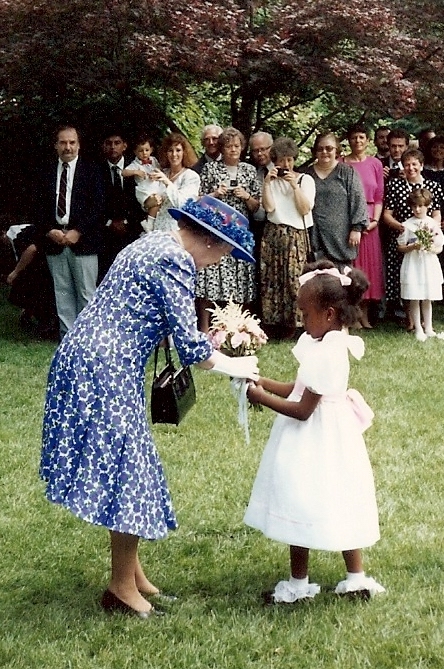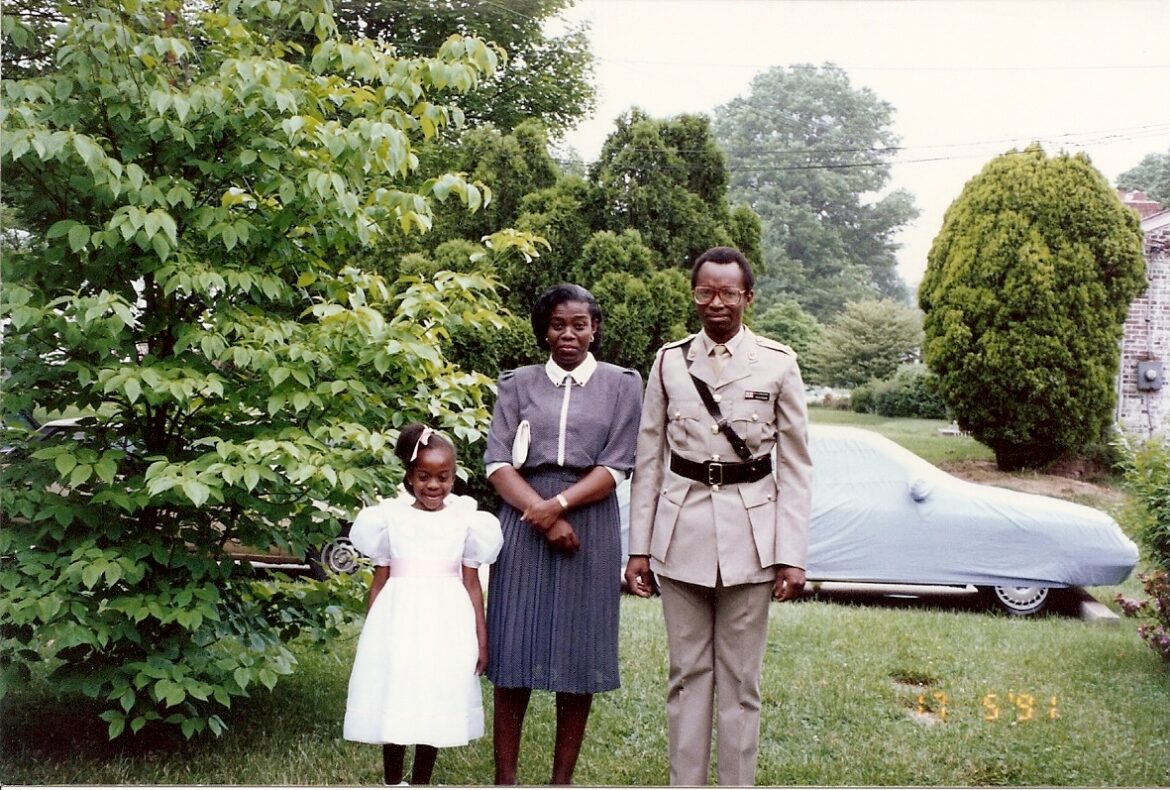
Change is constant, isn’t it? I’ve learned this to be at peace with this. In fact, I’m the kind of person who can remain upbeat and energetic in almost any situation.
My emotional resilience didn’t come naturally, however. I was a shy, middle child who found moving stressful and unsettling; it took a lot of effort for me to make new friends. But since my dad was a doctor in the British Armed Forces, our family was always moving to new postings: 1. 1986 – 1988 Bückeburg, Rinteln (Germany), 2. Bethesda, Maryland (USA) 1988 – 1981, 3. Bückeburg, Rinteln (Germany), 4. 1995- 2000 Fleet, Hampshire, 5. 2000 -2009 Hilsea, Portsmouth. On top of that, I was also a Third Culture Kid (TCK) navigating the cultural influences around me through the lens of my family’s Ghanaian origins.

All these moves were hard at first, but then I began to appreciate the great memories we were making along the way — like the time my name was picked out of a hat to be one of the base kids who got to meet Queen Elizabeth II during her visit to the U.S. in May 1991. Growing up in a military family also exposed me to many different kinds of people, which taught me to be more open to diversity throughout my life.
Most importantly, I developed resilience, which has served me well as an adult and a career coach. Many of my clients are American women who have moved to London as expats and aren’t sure how to resume, restart, or reimagine their careers. I provide a friendly face and an empathetic listening ear, as I guide them through their emotional and professional transitions.
In this article, I will share four tips for developing greater emotional resilience. In my next piece, I will share advice for developing greater professional resilience.
We can all agree that it’s tough to move from place to place and be forced to adapt to a completely new environment; it’s stressful and upsetting to leave friends and family behind. However, there are a few ways that you can become more emotionally resilient.
1. Accept that change is constant
A lot of work goes into making a relocation as stress-free as possible, from planning logistics to tapping into our support networks. And yet despite our best efforts, the best laid plans can always change; haven’t we all learned this recently, thanks to COVID-19?
Try shifting your mindset to accept that change is inevitable, rather than fighting it and spiralling down into depression or frustration. Negative feelings are natural and can be expressed in a healthy way, of course, but learn to recognize them and let them go rather than let them fester. Learn to focus on your ability to respond to change and the challenges that occur as part of your move. You’ll feel more in control if you accept that there are just some things that are out of your control. Finally, learn to anticipate when there is likely to be a change in the plan and work to be more solutions-focused in your response.
2. Don’t let negative feelings overwhelm you
There are just going to be some days when you’ll hate the fact that you’re on the road again and uprooting your life to someplace new. That’s totally OK!
Remember that it’s normal to feel anxious about moving. Let those feelings out in a healthy way: take a walk, listen to some music, do whatever gives you a pick-me up when you are feeling low. If you’re feeling stuck, talk openly to your spouse, significant other or a friend.
3. Cultivate and practice optimism

No one expects you to be Pollyanna all the time — even if, like me, you’re considered a “cheerleader” among your friends and family! It is helpful to practice expressing optimism on a daily basis, however, which will enable you to think about the possibilities, the solutions and be grateful for all the wonderful things that you have in your life currently.
Try saying the same thing with a smile on your face vs. a neutral expression vs. a frown. Doesn’t it feel better to say it with a smile? Next, try to phrase the same sentiment in a more positive, action-oriented way. Take a look at the phrases below:
Optimistic:
“I’m going to make our new place feel like home.”
Pessimistic:
“I’ll try to make our new place feel like home.”
Can you feel the difference already?
4. Laugh more often
Laughter really is the best medicine. It makes you feel good, it’s contagious (in a good way!), and it helps us to build emotional resilience. If you can see the funny side of life, we’ll feel less stressed, anxious and worried.
Find something that makes you laugh, whether it’s watching a comedy, reading a humorous story, or sharing jokes with a friend, spouse, or your kids. Do it every day.
These four tools have helped me go from being the shy, anxious kid in a new, unfamiliar place to a confident adult who can motivate myself, my friends, family, and clients.
Part 2 of my story focuses on professional resilience — which is much easier after you have mastered emotional resilience.

